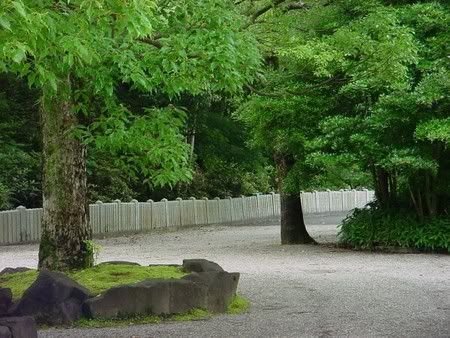This week I talked about visualization in my ongoing meditation classes and I quoted Einstein who said, "Imagination is more important than knowledge." And so I was dismayed when I read a commentary in Grist magazine about a group of gifted elementary students who imagine a very bleak future indeed. Here's what the author, Karen Hurley, says about them:
In their envisioned future, they imagined a community with only indoor parks. Beyond these parks, there would be no trees, no plants, no birds, and no animals. Freshwater would be gone, because lakes and streams would either be dried up or too polluted to support life; drinking water would have to be created from desalinization plants on the coast. In the future these children predicted, universities and colleges would be closed because everyone would learn -- alone -- through their personal computers.
As the children spoke, I sat with tears rolling down my cheeks. Had I really just heard what they'd said? Had the appreciative and encouraging municipal council heard the same thing? Why would children who lived in an idyllic natural environment -- surrounded by trees, a rich diversity of plants and lush gardens, abundant wildlife including deer and cougars, large forested parks, and fish-bearing streams -- imagine a future that was ecologically dead?
The answer may be because this is the future collectively envisioned by most everyone, including scientists, technology pundits, fiction and documentary filmmakers, writers, advertisers, video-game producers, and those of us whose careers are devoted to trying to protect the planet. Perhaps these children envisioned a future in which their community was dead because that's the future they're taught is inevitable.
I realized in reading this article that my vision of the future is like that too. But take a look at what Hurley says next:
I fully understand this despair. I hit a wall of it straight-on during my tenure as an environmental planner. In fact, I remember saying things like, "Yes, we will hit total ecological collapse, but our job is to ensure that as many species as possible live beyond it." Now I see how harmful such words are.
Somehow, we need to begin to envision ecologically sound and socially just futures that reflect the great diversity of all beings, including humans. We must insist on having a say in what our futures look like. We do not have to accept the singular vision being created by those in power.
She concludes this way:
As peace activist Elise Boulding puts it, "The sheer difficulty of imagining a future sustainability different from the present is one of our greatest problems as a society." Let's create, in the space that Grist provides, a dialogue about our worries and our hopes. Let's share stories about what is important for us to put in place for the future, and what's happening in our communities now that provides hopeful ways forward. It will be hard work to imagine sustainable and just futures, but it is time to begin.
Yes, it is important to sound the alarm. But it is also important to believe that taking action is actually worth it. This is why I periodically post suggestions for taking action. One simple action I want to remind you about is replacing incandescent light bulbs with compact florescent bulbs*. If you just change one or two, you're making a difference. Let's all start to visualize manageable changes. See yourself planting a tree, for example. Then do it. See yourself combining errands and thus making fewer trips in the car. Then do it. And let us not lose heart. Let us, rather, see the change we want to be and then be the change we want to see.
* Please see my posting on Earth Day right here.


No comments:
Post a Comment
New policy: Anonymous posts must be signed or they will be deleted. Pick a name, any name (it could be Paperclip or Doorknob), but identify yourself in some way. Thank you.